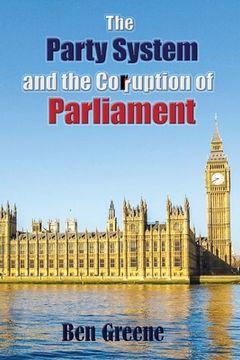Synopsis "The Party System and the Corruption of Parliament (in English)"
It was Charles II who, after the Restoration, in the abuse of Royal prerogative, first altered the established pattern of the Constitution by using stealth to insinuate the beginnings of a political dictatorship in England. This attempt changed the time-honoured Privy Council format of Executive procedure. Instead, it collectivised ministers within a secret body, hitherto unheard of in England, that would become known as 'the Cabinet.' This secrecy, and the rise of nepotistic influence within Parliament, gave rise to conditions in which political dictatorship, could emerge and take hold without effective censure and control. But this had not gone unnoticed and in 1701, Parliament introduced clauses in the Act of Settlement that would outlaw Cabinet-style government and the channels through which undue influence could operate. However, confusion arose when, soon after, the need to suspend these clauses temporarily was put into effect. Failure to resolve the issues around this confusion would, later, enable those who, while they claimed to be faithful experts of England's constitution, were secretly hostile to it, and would be experts in none other than promoting its dysfunction. In Britain, one long-term consequence of this would mean that competition between political parties would primarily be the competition with and for the abuse of power rather than its responsible exercise. Meanwhile, the influence of such 'expertise' would bring Britain into violent conflict with her colonies in North America. And not dissimilar forces a generation afterwards, while not so apparent to us in Britain today, would impose what was to be the forerunner of all other mass ideologies of the state - that of materialism itself. Joining the Labour Party as a young man with an idealistic determination to do what he could to stop another World War and remaining true to his ideals and Quaker values throughout, enabled Ben Greene to observe in a detached manner the political processes of government going on around him. His refusal to allow himself to be sucked into the Party Machine would cause a rift between himself and the Labour Party and, suspicions created by his steadfast Quaker neutrality, as WW2 broke, led him to be imprisoned under the Section 18B code. Falsely accused, and afterwards slandered to provide cover for those who had wronged him, his experiences led him on a path that would explore the English Constitution in great depth.

